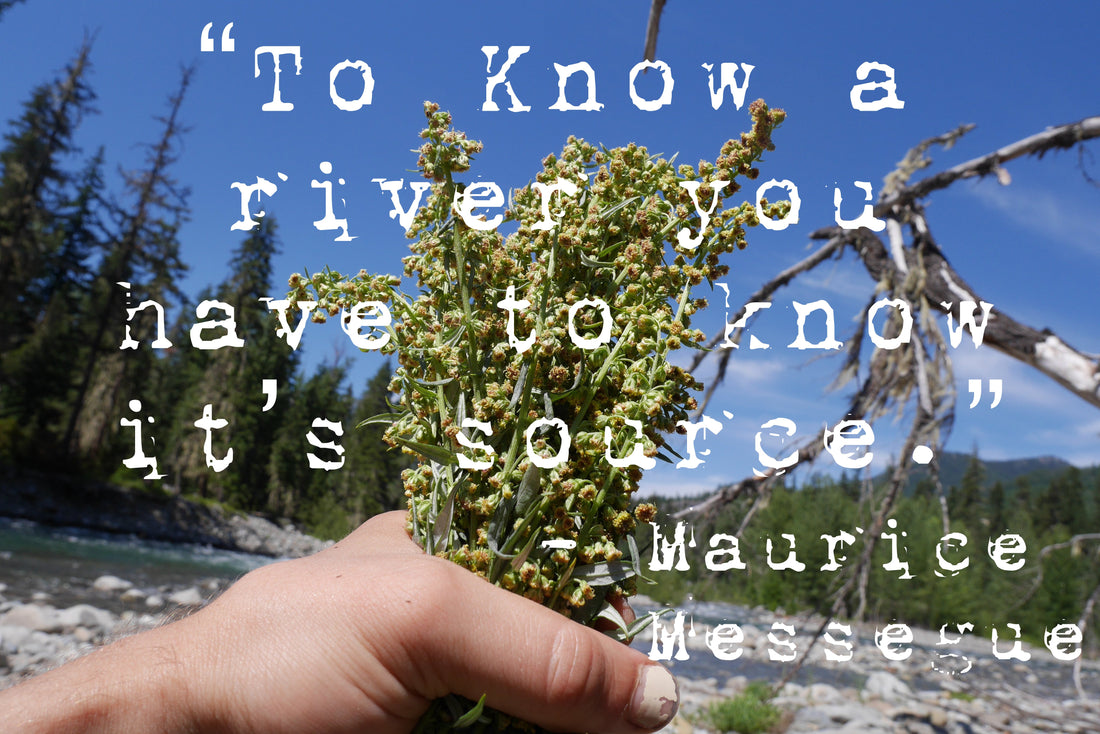
Caring for Your Body : The Toxic Ingredients to Avoid in Your Routine
Share
We highly recommend everyone to take the time to look at the ingredients found in your skin care and self care products. Ask yourself, how many of these ingredients are you familiar with? Even products marketed as “natural” may be filled with not-so-natural ingredients. If it contains an ingredient you can’t pronounce or if it contains a number in the name you might want to consider not using it. Many of these ingredients are not safe for our bodies or our rivers.
As of 2009, the European Union has banned at least 1328 chemicals from topical use in cosmetics. In contrast, as of 2018 the United States has only banned a total of 30 chemicals from use in these products. Many chemicals which have been shown to be skin irritants, hormone disruptors, and carcinogens (cancer causing) are still widely used. Earlier this year, Johnson & Johnson was ordered to pay $4.7 billion to a women who developed cancer in connection with the use of their baby powder.
Considering the disturbing nature of this information, we would rather not take that kind of risks. That’s why this is an important topic and why we should all try to inform ourselves and our community to make wiser decisions when it comes to the products we expose our bodies to everyday.
Often, we like to inform you of the virtues of our pure organic and wildcrafted botanical ingredients in our skin care and self care products but right now we’d like to tell you about the ingredients we are committed to NEVER use.
We say “NO” to the use of formaldehyde, parabens, phthalates, sulfates, petrochemicals, synthetic fragrances, and dyes in our skin care and self care products and these are some of the reasons why.
FORMALDEHYDE
We all know from our high school biology class that formaldehyde is a powerful preservative. The fumes of formaldehyde are classified as a cancer causing carcinogen by the World Health Organization and the U.S. government. It is also a potent skin sensitizer and allergen. Cosmetic manufacturers don't directly dump formaldehyde in their products, they instead use chemicals which release formaldehyde as they slowly decompose.
Common examples include -
DMDM hydantoin, Imidazolidinyl urea, Diazolidinyl urea, Quaternium-15, Bronopol (2-bromo-2-nitropropane-1,3-diol ),
5-Bromo-5-nitro-1,3-dioxane, and Hydroxymethylglycinate
PARABENS
Parabens are preservatives commonly used in many conventional self care products. Butylparaben, methylparaben, and propylparaben are all different kinds of parabens. They have been proven to be very effective at preventing microbial growth in these products. Allowing large producers to keep their products on shelves for many years. The downside is that there is increasing evidence to show that parabens disrupt the natural hormone function in humans and animals. Studies have shown a decreased length in menstrual cycles in women with high concentrations of parabens in their urine, and decreased birth weight and gestational age of babies born to mothers with high concentrations of parabens in their blood. Now it is certainly important that your self care products are safe to use, which is why we create in smaller batches and create recipes that don’t require the use of parabens.
PHTHALATES
Phthalates are used in many pesticides, to make plastics more flexible, and to make fragrances last longer. They are ubiquitous through out the modern environment. They are absorbed through the skin, intestines, blood stream, and the lungs. You probably already have detectable amounts in your urine. These are endocrine disruptors which influence the normal hormone functions and have been shown to be linked to obesity, breast cancer, thyroid dysfunction, and reproductive anomalies.
SULFATES
Sulfates, such as Sodium Laurylsulfate (SLS), are used as foaming agents in detergents, toothpastes, and shampoos. These are notorious skin irritants found in many common brands in supermarkets. These ingredients are a definite "no no" for anyone with sensitive skin conditions. We just don’t think there is any reason to use this.
PETROCHEMICALS
Many petrochemicals are byproducts of the oil industry and are used in self care products including mineral oil and petroleum jelly. They are used to help protect and prevent the loss of water from the skin. We would just rather avoid petrochemicals all together because of their impacts on the environment and society at large. Another good reason to avoid these ingredients is the fact that many of them are comedogenic, meaning that they may clog pores and disrupt the healthy functioning of skin. We also avoid the use of plastics in the packaging of our products as much as possible. We containers which are reusable and recyclable.
SYNTHETIC COLORS
Food coloring, also known as FD&C colors, are dyes certified for use in food and cosmetic products. Many of these are derived from petrochemicals. The safety of these ingredients have been of some concern since the 1970s. Regardless, these ingredients have no beneficial function in your self care products. Any coloring found in our products is natural. For example, the yellow hue of our shower/shampoo bars comes from naturally occurring beta-carotene which is very abundant in red palm oil.
SYNTHETIC FRAGRANCES
These ingredients are often simply labeled as “fragrance” and do not require that all it’s competent ingredients be listed. These ingredients are a major “no no” for us because they are derived from petrochemicals and phthalates, hundreds of other ingredients. These chemicals are also well known allergens which can cause headaches and skin irritation. Beyond all that they go against everything we believe in. We want to bring you closer to nature and natural smells are one of the most powerful ways to do this.
